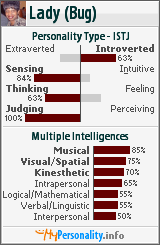Wednesday, March 9, 2022
🎥 History Making Productions
This 14-part docuseries covers over 500 years of Philadelphia history from its founding in the 1600s to the early 1990s. The first episode originally aired on April 26, 2011 and subsequent installments followed when completed during the last decade. The series won a total of 5 Emmy Awards throughout its entire run. Click on the image to watch the official trailer and the individual text links to see the full episodes on YouTube. Hopefully, plans are in the works for future installments from HMP so this historical presentation can continue beyond 1994.
1. A Lost World (1600-1680): For centuries, the land that will become Philadelphia is home to the Lenni Lenape people. The rich soil and rivers support a peaceful civilization, but in the 1600's Dutch settlers assert their rights to the territory, and a bloody confrontation erupts. Swedish farmers arrive next, but their colony is torn apart by the tyrannical rule of Governor Johan Printz. By the late 1600's, persecuted English Quakers seek a safe haven in the area just as outbreaks of European disease devastate the Lenape.
2. In Penn's Shadow (1680-1720): Philadelphia celebrates its founder more than any other American city, but who exactly is William Penn? For many, he is a statue atop City Hall, but Penn's busy life reflected an era of chaotic upheaval and conflict. He is at once a radical Quaker, political prisoner, visionary city planner, absent landlord, and a slaveholder. His ideals, contradictions, and ambitions cast a long shadow across American history. This episode explores what it means to live in Penn's shadow.
3. Franklin's Spark (1720-1765): Benjamin Franklin is Philadelphia's most iconic citizen, but how did William Penn's city shape the man often called "The First American"? This episode follows Franklin from his arrival as a fugitive indentured servant to his emergence as a leader of craftsmen, civic innovator, media pioneer, politician, and the force behind America's greatest enlightenment city. But all around Franklin, slavery drives the city's prosperity. Sampson, enslaved to Governor James Logan, strikes out for freedom, forcing Quaker power brokers to wrestle with the great evil of their times. And soon, Philadelphia's peaceful charter will face its greatest test, as a violent frontier conflict threatens to explode in the city's streets.
4. The Storm (1765-1790): Discontent among Philadelphians rises with every new British tax and with it, tensions build between the wealthy and working classes. As the largest and most diverse city in the colonies, Philadelphia attracts the powerful and passionate, and quickly becomes the headquarters for the American Revolution. Once independence and war is declared, revolutionaries seek out loyalists, who they see as dangerous, and traitorous. Now, the city is at war with itself. Who will fight? Learn the real stories of iconic Philadelphians like Benjamin Franklin, Betsy Ross, Thomas Paine, and Charles Willson Peale, and how their actions defined Philadelphia and the nation that would emerge.
5. Fever 1793 (1790-1820): Philadelphia's population is decimated by an outbreak of yellow fever in 1793. As the city's physicians and civic leaders fight back, they define our modern conception of public health and establish some of the city's fundamental institutions that still operate today.
6. Disorder (1820-1854): In the decades before the Civil War, the city we know as Philadelphia was divided into 29 independent towns and districts. With no unified police, fire, or political authority, chaos ruled the streets. Riots over slavery, jobs, and religion became the norm during the most violent period in the city's history. See the dreamers attempting to hold on to the revolutionary past, the firebrands who challenge the city to rise up against slavery, and the mobs who threaten to destroy it all. Whose Philadelphia will survive?
7. An Equal Chance (1855-1871): The Civil War shatters neighborhood calm and brings old tensions to a boiling point. Philadelphia will be the powerhouse of the north, brimming with industrial muscle, scores of war hospitals, and thousands of troops. Citizens rally around President Lincoln's call that "all should have an equal chance." But with the war over and the president dead, the fight for equality becomes a battle in the streets with tragic results.
8. The Floodgates Open (1865-1876): An era of aspiration and ambition characterized post Civil War Philadelphia. Industrialists sought great wealth and expansion. Newly freed Black Americans sought equality. Lincoln's political party planted its flag for power and control. A new City Hall would house their government. The excitement and promise of the era would be capped with a major national celebration, the Centennial of 1876.
9. World Stage (1872-1899): Philadelphia celebrates the Centennial of the USA with a spectacular World's Fair in 1876. The merchant John Wanamaker captures the spirit of the times with his grand department store. He leads the effort to build a city within the city for the fair, including the largest building in the world. As millions flock to the Centennial, it becomes a magnet for activists. Susan B. Anthony leads a group of women who disrupt the July 4th celebration at Independence Hall to advocate for women's right to vote. Educator Caroline LeCount presses for the inclusion of Black Philadelphians in the planning process. The city bristles with ambition and aspiration, which manifest in the plans for a towering new City Hall. But, as construction of City Hall drags on for decades, John Wanamaker worries that the soaring city he imagined will fall under the influence of a corrupt political machine.
10. Awakening (1900-1920): In 1900, Philadelphia welcomes the new century with a burst of energy. As immigrants flow in, they find a metropolis of smoke and machines making every product under the sun. But, a political machine keeps thousands of children working in the factories too. For newly arrived Europeans and Black migrants from the South, it will take genius and grit to bend the old lines of power. This episode carries the viewer on a tour de force of the booming city that launched a baseball dynasty, a skyscraper boom, and the voice of a generation.
11. Corrupt (1920-1940): In the 1920's, Philadelphia was America's third largest city, with nearly two million residents. Philadelphians worked in factories that ran around the clock, flocked to speakeasies serving illegal liquor, and had plans for an elegant parkway to celebrate urban greatness. But, in every neighborhood, an entrenched system of domination by political bosses called the shots and reaped private financial rewards. It was the empire of The Vares, the family more powerful than any Mayor with a vice grip on Philadelphia's destiny. How will the city survive the grip of The Vares and what will happen when the Great Depression brings the roaring 20's to a crashing end?
12. Promise For A Better City (1944-1964): Victory in World War II means optimism in the streets of Philadelphia. Outsiders rout a corrupt political machine with promises for a rebuilt downtown, civil rights, and industrial prosperity. Neighborhood kids sing love songs on street corners and television beams their spirited dancing to teenagers nationwide. But, the optimism fades as urban renewal destroys historic neighborhoods, workers scramble for dwindling factory jobs, and Black Americans grow impatient with the slow pace of racial justice. Tensions erupt in 1964, setting the stage for a new era of confrontation.
13. The Fight (1965-1978): As the Bicentennial approaches, Philadelphia reels from factory closures and crime. Controversial police commissioner Frank Rizzo seizes the moment and wins election as Mayor. The pugnacious Rizzo merges police and political power, inciting hard-driving press investigations and a recall movement. A team of South Philly song writers soothes the tension with soulful music that sweeps the nation, while the city cheers for working class heroes in the boxing ring and on the ice.
14. Breakthrough (1978-1994): In the aftermath of devastating job losses, Philadelphians reinvent their city. Long-oppressed Black Americans rise to political power, skyscrapers break a long-held "gentlemen's agreement," and neighborhood kids find their artistic voice on crumbling factory walls. But, when police engage a radical group in a disastrous confrontation, the city's fragile social compact teeters on the brink of collapse.
Subscribe to:
Post Comments (Atom)
Watch your step!
This household is protected by Ladybug Home Security.
 As a Christian who is active on the internet, I hold myself to certain standards of conduct:
The Nazarene Network @ NazNet.com |




































+of+JBHS+30th+Reunion.jpg)


































































 🕊 Rest in Paradise Dad
🕊 Rest in Paradise Dad 🕊 Rest in Paradise Mom
🕊 Rest in Paradise Mom



















No comments:
Post a Comment